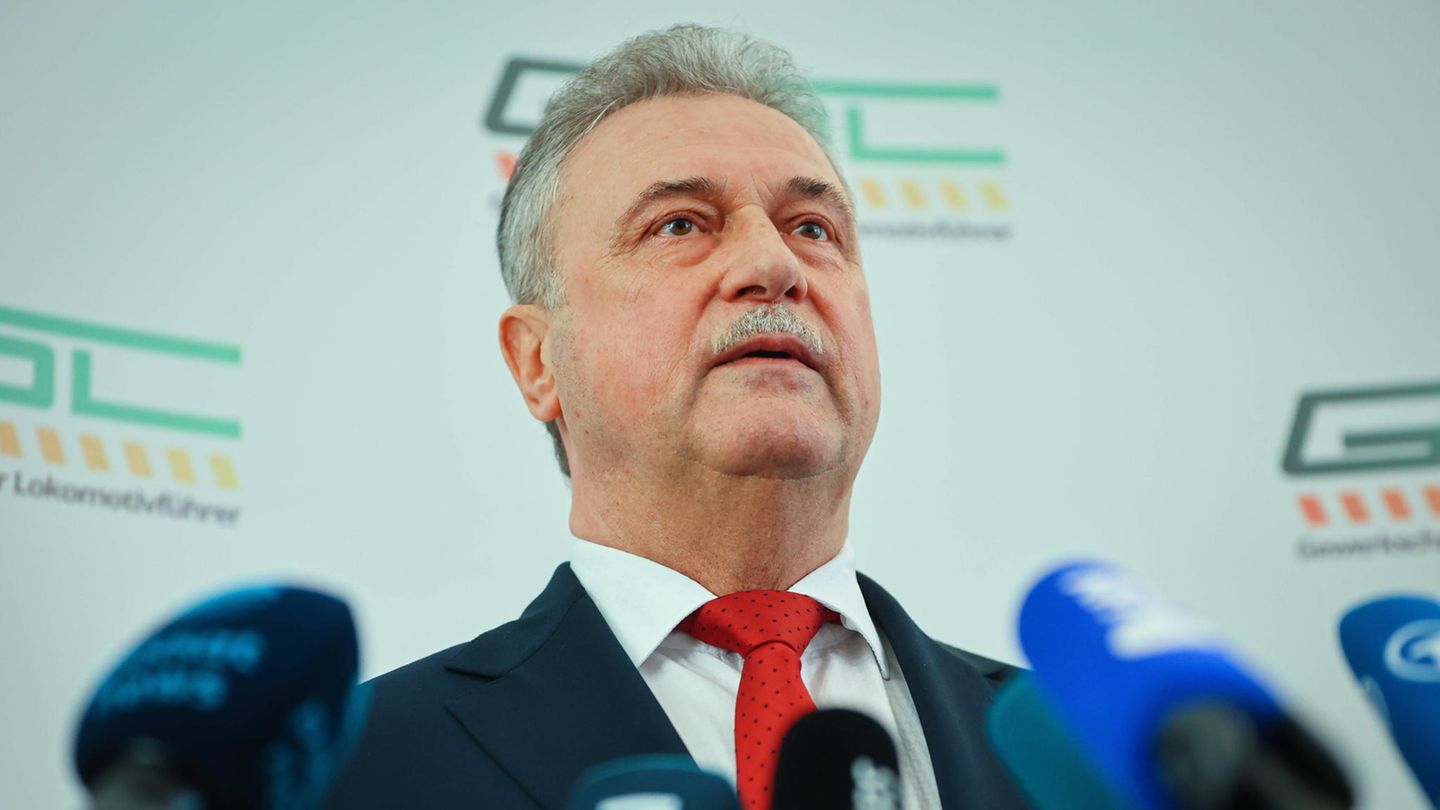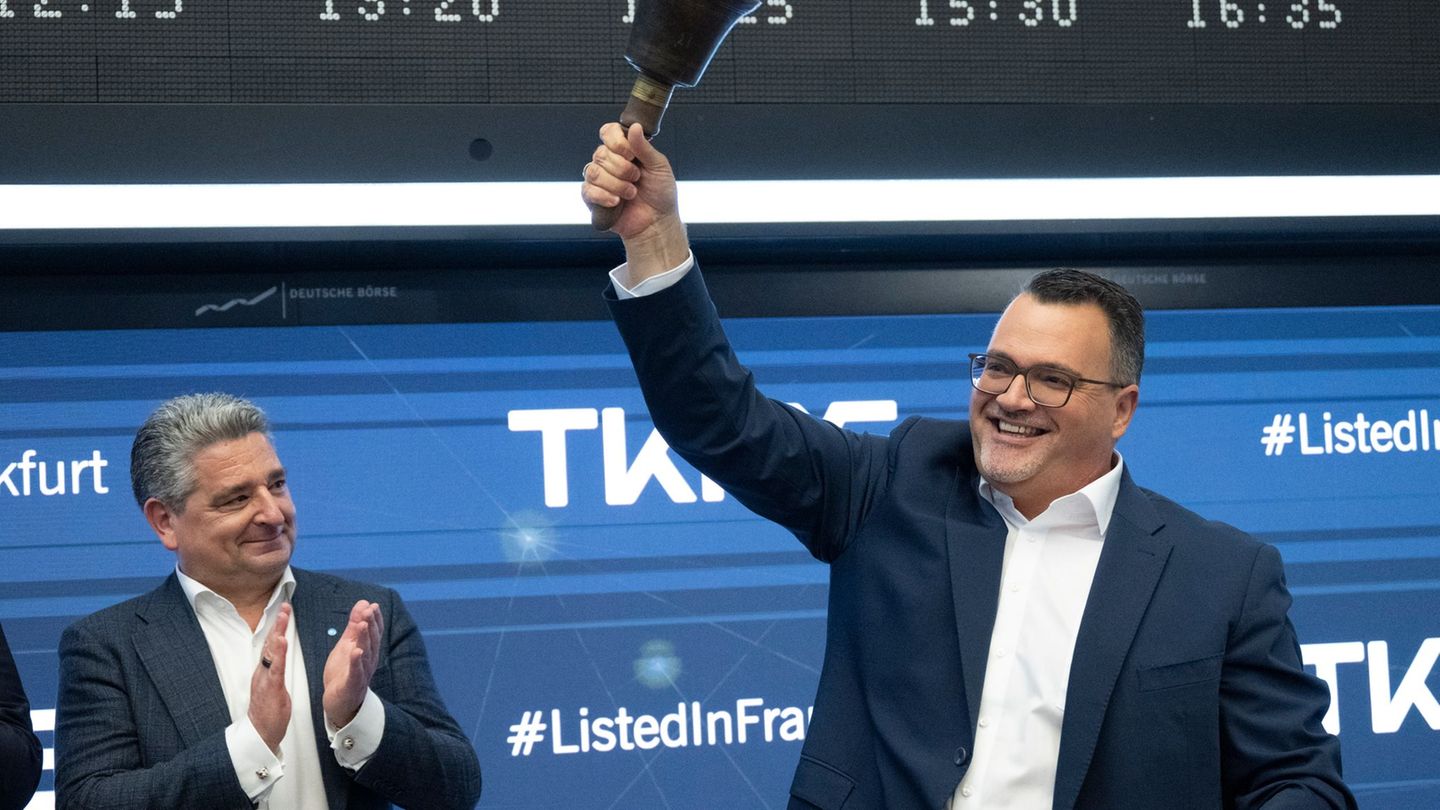Is Claus Weselsky losing track of the collective bargaining dispute? The railway wanted to be more accommodating to the train drivers on the issue of working hours than the GDL boss claimed, as the union boss has now had to admit. There is still a strike.
In the collective bargaining dispute with the railway, GDL boss Claus Weselsky justified the new strike with incorrect figures. As it became known on Tuesday, the last rail offer was better than the union boss had previously presented. Weselsky admitted to the “Süddeutsche Zeitung” that he had made a “mistake in his thinking” at the press conference on Monday. This doesn’t change the rejection of the offer, but there is still a strike. Long-distance, regional and S-Bahn traffic is largely at a standstill from Thursday morning to Friday afternoon.
Weselsky’s error in reasoning is notable in that it affects the train drivers’ core demand for reduced working hours of 35 hours. The GDL chairman said on Monday that the mediators’ proposal only envisaged a reduction from 38 to 37 hours with full wage compensation. A further half-hour reduction would have been possible within the framework of an existing working time choice model at Deutsche Bahn. The railway rejected this representation.
Bahn wanted to accept a 36-hour week
The two mediators in the rail dispute, the former Federal Interior Minister Thomas de Maizière and Schleswig-Holstein’s Prime Minister Daniel Günther (both CDU), therefore felt compelled to clarify on Tuesday. The moderators’ agreement proposal envisaged a greater reduction in working hours. According to this proposal, the weekly working hours for shift workers should be reduced in two stages from the current 38 to 36 hours with full wage compensation. The first hour should be reduced on January 1, 2026, and the second on January 1, 2028.
This emerges from a letter from the mediators to the two collective bargaining parties, which they published on Tuesday. “Due to different interpretations of the proposal made by us as moderators for the further progress of the discussions between Bahn and GDL, we are publishing this for clarification,” said de Maizière and Günther on Tuesday. “With this proposal we wanted to reach an agreement in this collective bargaining dispute.”
In the collective bargaining dispute, the German Locomotive Drivers’ Union (GDL) is calling, among other things, for the weekly working hours for shift workers to be reduced to 35 hours without financial losses. The compromise proposal of 36 hours comes very close to this, although not until 2028. The railway said it had agreed to the proposal. The GDL does not, which is why negotiations failed last week without an agreement.
Source: Stern




